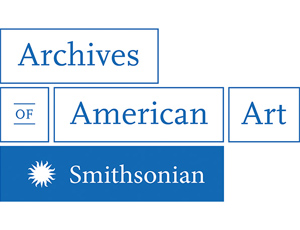What Does a 1990s Supermodel’s Swimsuit Calendar Tell Us About Archives?
Connections between Colin de Land, the gallery space Four Walls, and Claudia Schiffer demonstrate how archival collections are interrelated
:focal(500x333:501x334)/https://tf-cmsv2-smithsonianmag-media.s3.amazonaws.com/filer_public/9d/e3/9de3e326-e66b-4f7a-b3e1-147c75789105/delacoli_box0002_folder021_012_sv.jpg)
One November morning in 2021, I was the Williamsburg, Brooklyn basement of artist Michael Ballou. Along with Ballou and fellow artist Adam Simon, I was going through the records of Four Walls, the unconventional exhibition and event space that the two of them had operated out of Ballou’s converted garage from 1991 to 2000. (Simon had initially founded the space with his wife Michele Araujo in Hoboken in 1986.) Amongst the various forms of documentation and ephemera, I remember coming across a particularly unusual artifact: a 1995 swimsuit calendar featuring the German supermodel Claudia Schiffer bearing the inscription “to 4Walls, love Claudia Schiffer.” By way of explanation, Ballou offered that the calendar was from a signing event held at a midtown Manhattan location of the music chain store Sam Goody. Ballou explained that he and dealer Colin de Land had attended the event together and both had come away with autographed calendars. He also recalled that de Land had been upset because Schiffer had signed the Four Walls calendar with “love” while he received a more tepid “best.” De Land, he recalled, had gone through the line a second time, hoping to obtain a more effusive dedication, only to be rebuffed and turned away when he reached the front of the queue. It was a funny story, but we had a lot of material to get through and quickly moved on.
/https://tf-cmsv2-smithsonianmag-media.s3.amazonaws.com/filer_public/4c/b7/4cb709e4-98be-473b-a5bd-0f47ade79097/calendar-cover_delacoli_box0019_folder003_001_sv.jpg)
The following June, 2022—a month or so after finalizing the acquisition of the Four Walls records—I was in the Washington, DC office of the Archives of American Art, looking through the Colin de Land collection when I came across pages from de Land’s signed calendar, complete with a salutation even more succinct than Ballou had remembered: a terse “to Colin, Claudia Schiffer.” A little more digging turned up an envelope of snapshots that capture the event. Schiffer signs calendars, while Ballou and others stand in line, pose with other attendees, and generally mug for the camera.
In several of the images, Ballou can be seen operating a handheld 8mm film camera, while one negative frame shows him holding a newspaper advertisement that pinpoints the date of the event as Tuesday, November 15, 1994. Nearby, a folder of photos documenting the 1995 exhibition “Mapping: A Response to MoMA,” a group show “initiated” by artist Peter Fend, reveals another view of the event. A photo-within-the-photo shows de Land—visible from behind sporting his trademark trucker hat—at the signing table with Schiffer, pinned to a sheet of paper titled “A Response to MAMA, initiated by Art Club 2000.” I took a few pictures with my phone and sent them to Ballou. He responded “Ha!!!!! Didn’t even know those existed! . . . Want me to look for the Super 8?” A few weeks later, Ballou delivered a reel of film labeled “Colin + Claudia” to the Archives New York office, where I added it to the Four Walls records.
/https://tf-cmsv2-smithsonianmag-media.s3.amazonaws.com/filer_public/c4/a6/c4a64069-a14d-4fde-8d78-8d24224b6973/colin-claudia-envelope_sv.jpg)
“Claudia Schiffer Day,” as de Land termed it, is just one of many connections that emerge between the two collections. Many of the artists involved with Four Walls also exhibited at either de Land’s American Fine Arts, Co. (AFA) or with de Land’s partner, gallerist Pat Hearn. For example, Jason Simon, brother of Four Walls founder Adam Simon, was represented by Hearn, while Jason’s partner Moyra Davey was represented by de Land. Mark Dion and Andrea Fraser, both of whom were core AFA artists, also participated in shows at Four Walls in Hoboken. Claire Pentecost, who was part of the programming committee when Four Walls relocated to Brooklyn, also showed at AFA. In addition to these and other relationships within the New York art world, there are international points of contact as well. In 1990, at the same time that Four Walls moved to Brooklyn, the artists Josef Strau and Stephan Dillemuth founded a space called Friesenwall 120 in Cologne. Much like Four Walls, Friesenwall 120 was an intentionally loose and flexible structure, serving multiple functions and becoming an important social nexus within its local scene. In 1993, Four Walls hosted a Friesenwall 120 exhibition and event, documented in the form of photographs, printed material, and a Hi8 videorecording. (Pat Hearn mounted a Friesenwall 120 show in her SoHo gallery the same year.) In 1997, as part of a public conversation with Adam Simon, Friesenwall co-organizer Nils Norman exhibited The Four Walls Micro Farm, Brooklyn, NY, a two-part work comprised of a scale model and a large diagram explaining the redesign of Four Walls into a small self-sustainable urban farm. The conversation coincided with Norman’s solo exhibition of similar proposals at American Fine Arts. In addition to photo and video documentation, the Four Walls records include the work itself, with AFA labels still attached.
It's always exciting to discover these kinds of intimate connections between different collections. This happens most often with correspondence—commonly with incoming letters, postcards, and the like. Most collections only contain one half of any epistolic exchange, and it’s especially useful for researchers when we can locate the other half in another collection. In this way our collections are often in conversation with each other. However, this may be the Archives’ only known case of a supermodel’s swimsuit calendar doing the talking.
Explore More:
- New Collections: Four Walls Records by Jacob Proctor
- Four Walls records, 1984–2000 Archives of American Art, Smithsonian Institution
- Colin de Land collection, 1968–2008 Archives of American Art, Smithsonian Institution

/https://tf-cmsv2-smithsonianmag-media.s3.amazonaws.com/filer_public/19/dd/19ddb466-62c1-46e2-a5c7-52c9bd4b0882/delacoli_box0002_folder021_032_sv.jpg)
/https://tf-cmsv2-smithsonianmag-media.s3.amazonaws.com/filer_public/f6/56/f6568941-19a4-42e2-aa12-40e49e7aacb0/delacoli_box0002_folder021_006_sv.jpg)
/https://tf-cmsv2-smithsonianmag-media.s3.amazonaws.com/filer_public/d8/59/d8593a58-9d88-4e21-ab2a-f513837bce8e/delacoli_box0002_folder021_009_sv.jpg)
/https://tf-cmsv2-smithsonianmag-media.s3.amazonaws.com/filer_public/8a/31/8a3163d3-e3c0-4ee5-9535-ab30538778cd/delacoli_box0002_folder021_023_sv.jpg)
/https://tf-cmsv2-smithsonianmag-media.s3.amazonaws.com/filer_public/e9/6a/e96aa72c-8e81-4e42-a28b-a3558d27676a/delacoli_box0002_folder021_028_sv.jpg)
/https://tf-cmsv2-smithsonianmag-media.s3.amazonaws.com/filer_public/46/c5/46c54ddb-f901-4b8a-b17a-3f93f123fe7c/aaa_delacoli_3010437_sv.jpg)